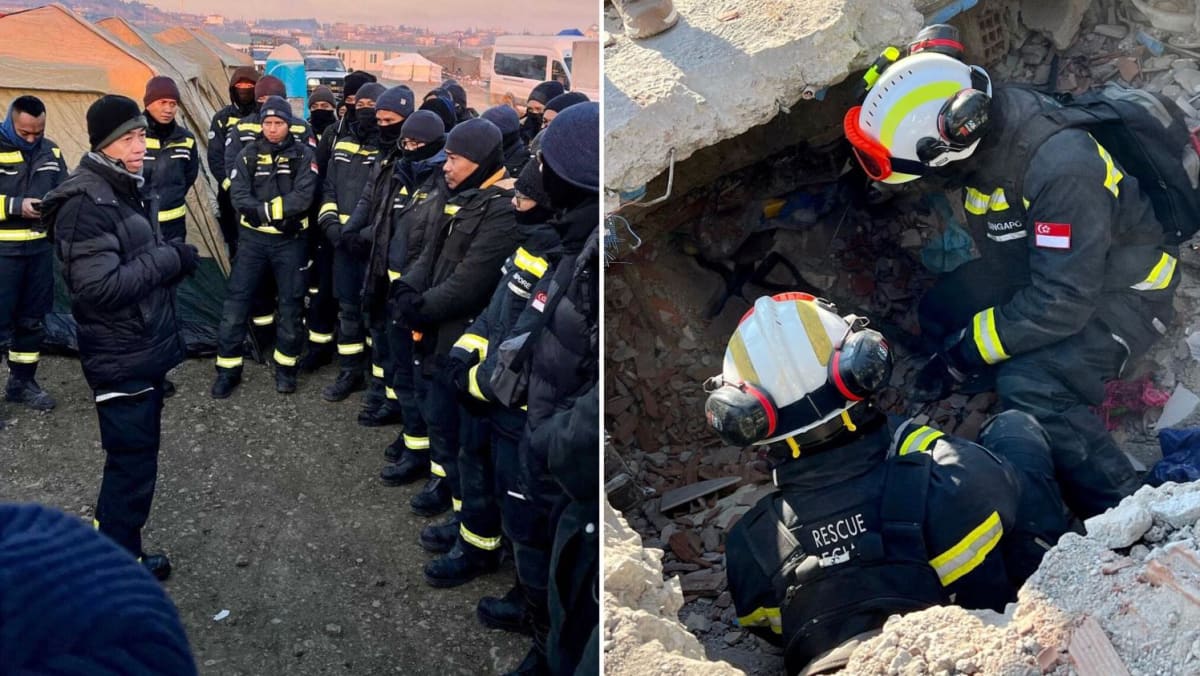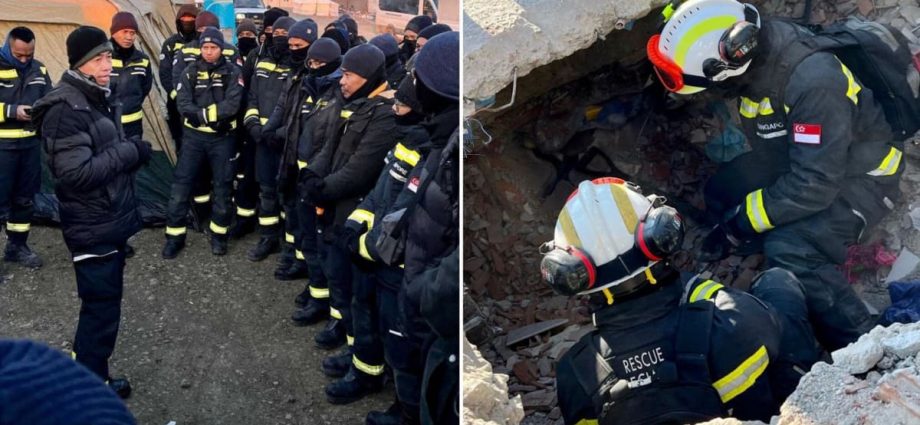
“One of the main challenges we’re facing over here is the weather,” said Col Chew when asked about obstacles the team from Singapore had to overcome.
The temperature would drop to as low as 6 degrees Celsius during the day and that it would drop even lower in the night to about -6 degrees Celsius, he added.
“(Our) personnel’s ability to operate in such conditions is (also) definitely a big challenge,” he said.
Understanding and being culturally sensitive to the “do and don’ts” of the area the team is working in is also a challenge, he said.
TRAINING “SUFFICIENT” TO METE OUT ASSISTANCE
Col Chew also mentioned how Urban Search and Rescue (USAR) Methodology remains the same as the contingent moves from mission to mission.
SCDF prepared five portable power generators, as well as 24 boxes of transportation carriers containing USAR equipment (cutting/breaking/lifting/stabilising equipment), medical supplies, field rations, and tentage to be brought over to Türkiye.
To support the contingent’s enhanced USAR operations, they brought additional search and rescue equipment, medical supplies, and communications and logistics support equipment.
The training done in Singapore is “sufficient” to mete out assistance to countries affected by earthquakes, he added.
He also said that differences in how operations may be conducted depends on what the buildings in affected areas are, either high-rise buildings or low ones.
Col Chew said that Kahramanmaras, the city they were deployed to over the past few days, was mostly filled with residential buildings with an average height of six storeys.
He said that they know their way round conducting rescue operations in the terrain, since they have attended to similar structures before, “so it’s not new”.

